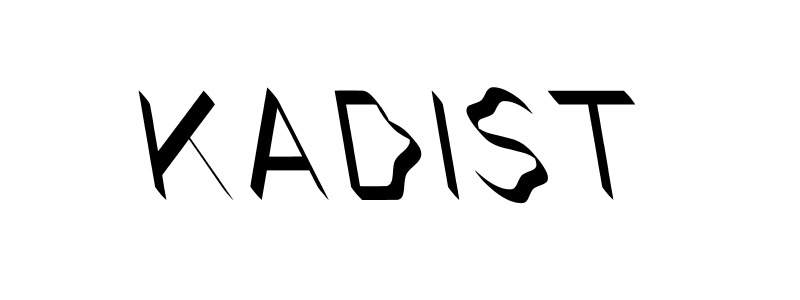Tierra
2013 - Film & Video (Film & Video)
33:28 minutes
Regina José Galindo
In 2012, former Guatemalan President José Efran Ros Montt was charged with genocide and crimes against humanity; Regina José Galindo’s video Tierra is a chilling reimagining of the atrocities recounted during his trial. Tierra depicts the artist standing naked in a lush field that a bulldozer has broken up. The video references an incident in which innocent Guatemalans were brutally murdered and buried in a mass grave. The stark contrast between the machine’s force and the artist’s vulnerable body encapsulates Montt’s regime’s injustice. Moreover, the chasm surrounding her serves as a poignant symbol of the despair and alienation that political violence and tyranny frequently cause.
Regina José Galindo is a visual and performance artist. Her work investigates the universal ethical implications of social injustices such as racial, gender, and other abuses in our society’s inequitable institutions of power. In the context of a newly democratized culture, Galindo has developed a socially and politically motivated practice. She strives to acknowledge her country’s thirty-six years of civil war while also looking forward to a more peaceful and productive future. Galindo’s work focuses on historical issues that persist in the “new” Guatemala. Her work is confrontational and often shocking, bringing to light issues that few Guatemalans are willing to confront. Galindo’s unapologetically graphic actions amplify her contentious statements. She hopes to shake her Guatemalan audience out of their trance, breaking the numbness caused by years of violence. Galindo is best known for her performance work addressing the social, political and cultural violence that has affected her native Guatemala. Her work stages her own body, often submitting it to severe acts in order to evince the mass violence, crimes and sacrifice experienced by indigenous Mayan communities and the women among them who suffered the brunt of the conflict during the thirty-six year conflict. Indifference is not an option for Galindo, by appropriating destruction and loss, her work condemns the abuse of women, and propels viewers to response or resistance.
Colors:
Related works featuring themes of: » Body Art, » Central America, » Feminism, » Contemporary Participation, » Guatemalan

© » KADIST
Andrea Bowers
2015Bowers’ Radical Hospitality (2015) is a sculptural contradiction: its red and blue neon letters proclaim the words of the title, signaling openness and generosity, while the barbed wires that encircle the words give another message entirely...

© » KADIST
Andrea Bowers
2010The small drawings that comprise Study from May Day March, Los Angeles 2010 (Immigration Reform Now) and We Are Immigrants Not Terrorists are based on photographs taken at a political rally in downtown Los Angeles in which thousands of individuals demonstrated for immigrants’ rights...

© » KADIST
Chen Chieh-Jen
2010Empire’s Borders II – Passage and Empire’s Borders II – Workers are from the three-channel film installation Empire’s Borders II – Western Enterprise, Inc...

© » KADIST
Chen Shaoxiong
2006After engaging primarily with video and photography for more than a decade, Chen turned to painting to explore the issue of urban change and memories—both personal and collective...

© » KADIST
Chen Shaoxiong
2007After engaging primarily with video and photography for more than a decade, Chen turned to painting to explore the issue of urban change and memories—both personal and collective...

© » KADIST
Du Zhenjun
2010The Tower of Babel is an installation of large-format photographs that forces the audience to occupy a central position through its monumental scale...

© » KADIST
Harrell Fletcher
2005The American War , which takes its title from the Vietnamese term for what Americans call the Vietnam War, has toured the United States extensively with the goal of presenting a Vietnamese perspective of that history...

© » KADIST
Ranu Mukherjee
2011Conceived as a large-scale mural-like projection, Color of History, Sweating Rocks is a neo-futuristic, hybrid film that combines cinematic language, collage, animation, and inventive forms to highlight the plight of the peoples of the Sahara—and refugees in general—who have been displaced by oil-mining....

© » KADIST
Du Zhenjun
2010The Tower of Babel is an installation of large-format photographs that forces the audience to occupy a central position through its monumental scale...

© » KADIST
Lynn Hershman Leeson
2007Lynn Hershman Leeson’s genre-bending documentary Strange Culture tells the story of how one man’s personal tragedy turns into persecution by a paranoid, conservative, and overzealous government...

© » KADIST
Ana Teresa Fernández
2011The artist writes about her work Borrando la Frontera, a performance done at Tijuana/San Diego border: “I visually erased the train rails that serve as a divider between the US and Mexico...

© » KADIST
Paul McCarthy
1983McCarthy’s Mother Pig performance at Shushi Gallery in 1983 was the first time he used a set, a practice which came to characterize his later works...

© » KADIST
Chen Chieh-Jen
2010Empire’s Borders II – Passage and Empire’s Borders II – Workers are from the three-channel film installation Empire’s Borders II – Western Enterprise, Inc...

© » KADIST
Pak Sheung Chuen
2008Pak created New York Public Library Projects (NYPLP) (2008) during a residency in New York, using public libraries as exhibition spaces and the books they house as raw materials...

© » KADIST
Choi Jeong-Hwa
2008The application of bright colors and kitsch materials in Flower Tree manifests a playful comment on the influence of popular culture and urban lifestyle...

© » KADIST
Mauricio Ancalmo
2010War Footage is a series of wall-mounted works composed of 16mm film leader, tightly bound to flag-shaped panels by the artist...




